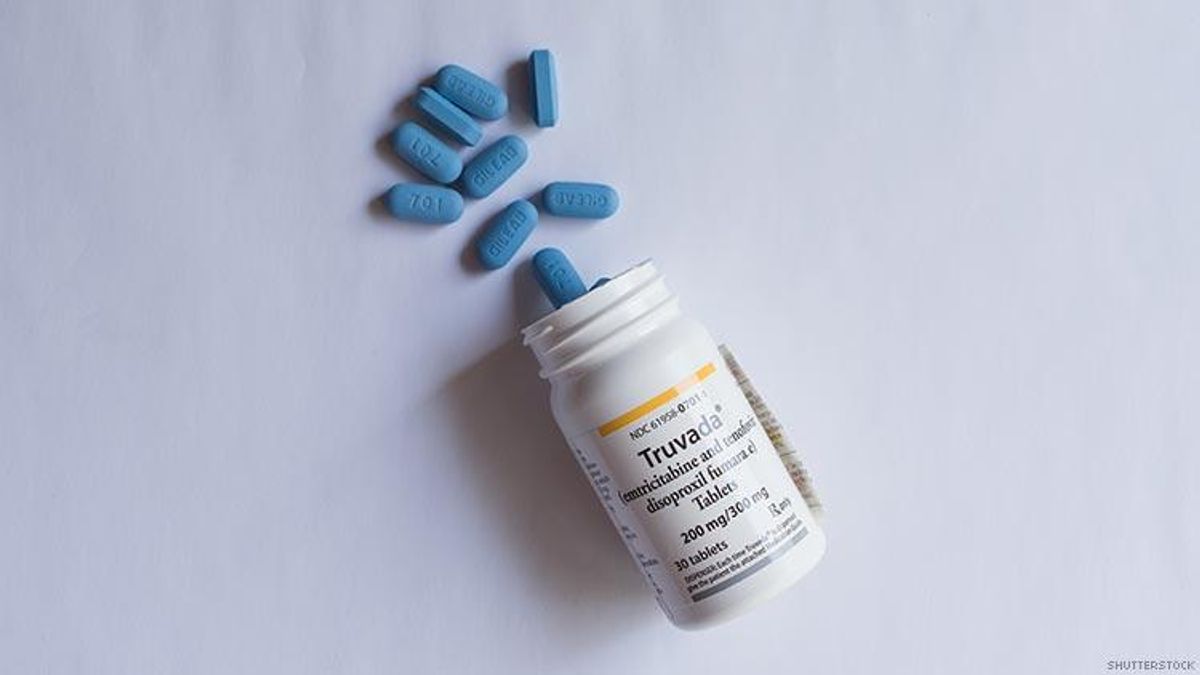This week is the sixth anniversary of the Food and Drug Administration's approval of Truvada for use as pre-exposure prophylaxis, and the advent of PrEP marks a huge milestone for the LGBTQ community.
When the AIDS crisis began, no action was taken by then-president Ronald Reagan. LGBTQ people formed their own groups to step in and provide information, care, and advocacy following tens of thousands of deaths, primarily of gay, bi, and trans people. During the 1980s, information traveled much more slowly. It took nearly two years from the first reported death in the U.S. in April 1980 to the founding of Gay Men's Health Crisis in 1982. ACT UP, one of the most visible health advocacy organizations, didn't form for seven years, until March 1987. The first national ad campaign began the following year, in 1988. While at the time these developments seemed to come quickly, for the nearly 100,000 people with AIDS in the U.S. and half million worldwide who would be diagnosed in the 1980s, it wasn't fast enough.
As a teenager growing up during this era, I have vivid memories of the fear and uncertainty. Many labeled AIDS a gay-only disease, viciously linking its spread to the supposed immorality of homosexuality. As a young gay man, I remember the emotional swings accompanying each new sexual encounter, rooted in the fear of an AIDS "death sentence" but also in the lack of clear and judgment-free gay sex education.
By the time Truvada was ready for use as PrEP in 2012, many more revolutions -- social, medical, and technical -- would sweep the gay community. Facebook became a global phenomenon, and "hookup apps" like Grindr and Scruff, where I am CEO, emerged to connect millions of men with sexual partners and friends nearby. This transformation meant the playbook about how to organize and inform a new medical treatment for AIDS had to be totally rewritten. Gone were the days of flyers on bus shelters or posters on street corners. With digital advertising, health organizations and drugmakers could send messages to gay men, instantly, in communities across the country.
At Scruff, we have worked with more than 800 different organizations to promote PrEP during the past six years, collectively showing messages about Truvada and PrEP hundreds of millions of times. In the last 30 days alone, 11 percent of guys on Scruff in the U.K. and 19 percent of the guys on Scruff in the U.S. indicated that one of their sex safety practices includes PrEP. It's hard to imagine these numbers growing as fast as they have without the help of in-app advertising, more than 90 percent of which was donated by Scruff.
Yet when we started this effort, we faced significant skepticism. "Truvada whore" became a pejorative in the first six months, while others laid the blame at the feet of hookup apps they felt fueled the spread of sexually transmitted infections. Our community quickly realized the benefits of PrEP, and this kind of shaming was identified as rooted in internal homophobia and not a legitimate public health criticism. By removing barriers from connections, and by moving HIV and AIDS from a death sentence to a manageable disease, we have enabled people to make more informed and less fraught decisions about their sex lives. We recognize the special role gay apps play in the lives of our members, and because of this we gladly accept the heightened responsibility to protect and inform. This potential for sustained, long-term education simply didn't exist in the pre-digital era. The stats above show us we are heading in the right direction.
In light of the progress we've made over the past decades, it's tempting to think that we are only steps away from a cure and that our previous advances will protect younger LGBTQ people for generations. While it's empowering to feel confident in our current position, it is essential that we remember that all of this is fragile. According to a recent statistic from the Centers for Disease Control and Prevention, HIV and AIDS remain persistent problems globally. We've come a long way in preventing and treating HIV, but there is still much more to accomplish. Annual HIV infections and diagnoses are declining in the U.S., but progress has been uneven, and annual infections and diagnoses have increased among some groups. The declines can thankfully be attributed to targeted HIV prevention efforts, such as Truvada.
As we contemplate the future of HIV and AIDS, Truvada, and LGBTQ health, it's hard to imagine that technology won't continue to play a central role. Health organizations should feel emboldened by the success of Truvada and continue to brainstorm how the digital revolution can accelerate efforts to bring this treatment to more people. Political advocacy will be just as critical, as we move to take Truvada into communities and countries still tarred by prejudice against same-sex relationships.
As CEO of Scruff, I feel a heightened responsibility to connect, educate, and protect each of our members and, by extension, the whole LGBTQ community, which is why we have and will continue to donate 10 percent of our digital advertising to LGBTQ non-profits.
No matter where this fight takes us, know that gay technology leaders stand behind our community 100 percent and will use our respective platforms to support the fight for this generation and the generations to come.
ERIC SILVERBERG is CEO of the Scruff app.


















































































